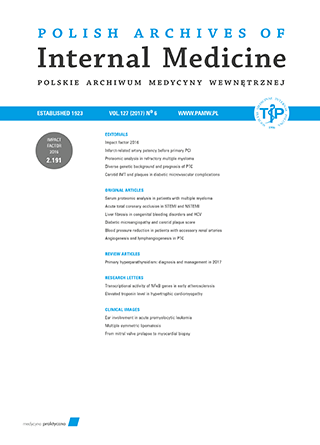Cazzola M, Rogliani P, Ora J, et al. Asthma and comorbidities: recent advances. Pol Arch Intern Med. 2022; 132: 16250. doi:10.20452/pamw.16250
ABSTRACT
Asthma is usually associated with pulmonary and extrapulmonary comorbidities that are more common in patients with severe asthma than in those with mild-to-moderate illness or in the general population. These comorbidities may affect the clinical intensity and severity of asthma and, as a result, increase health care costs related to its therapy. On the other hand, their recognition and appropriate treatment appear to improve asthma outcomes while optimizing therapy by preventing overtreatment. Comorbid conditions such as gastroesophageal reflux disease, allergic rhinitis, obesity, depression, diabetes mellitus, and cardiovascular disease are commonly known, though their prevalence varies significantly between studies; however, many more comorbidities may remain undiagnosed and only be discovered in an experienced specialized environment.
Unfortunately, the pathogenetic pathways linking asthma and many comorbidities are still unknown, which explains why they may often be misdiagnosed as diseases related to asthma treatment. Nevertheless, asthma and comorbid conditions often have common risk factors, and some evidence suggests that they share inflammatory pathways which exacerbate asthma. Inflammation was shown to play an essential role in the onset and development of various comorbidities. The role of systemic inflammation in asthma, on the other hand, remains unknown. Understanding the mechanism(s) that link(s) asthma and its concomitant disorders is critical for developing an effective treatment strategy. This review examines the epidemiology, pathophysiology, treatment suggestions, and significant knowledge gaps of these comorbidities.
No comments:
Post a Comment